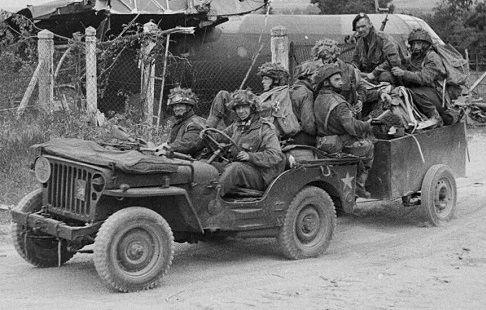'I am a Derry man' - Montgomery and the Maiden City
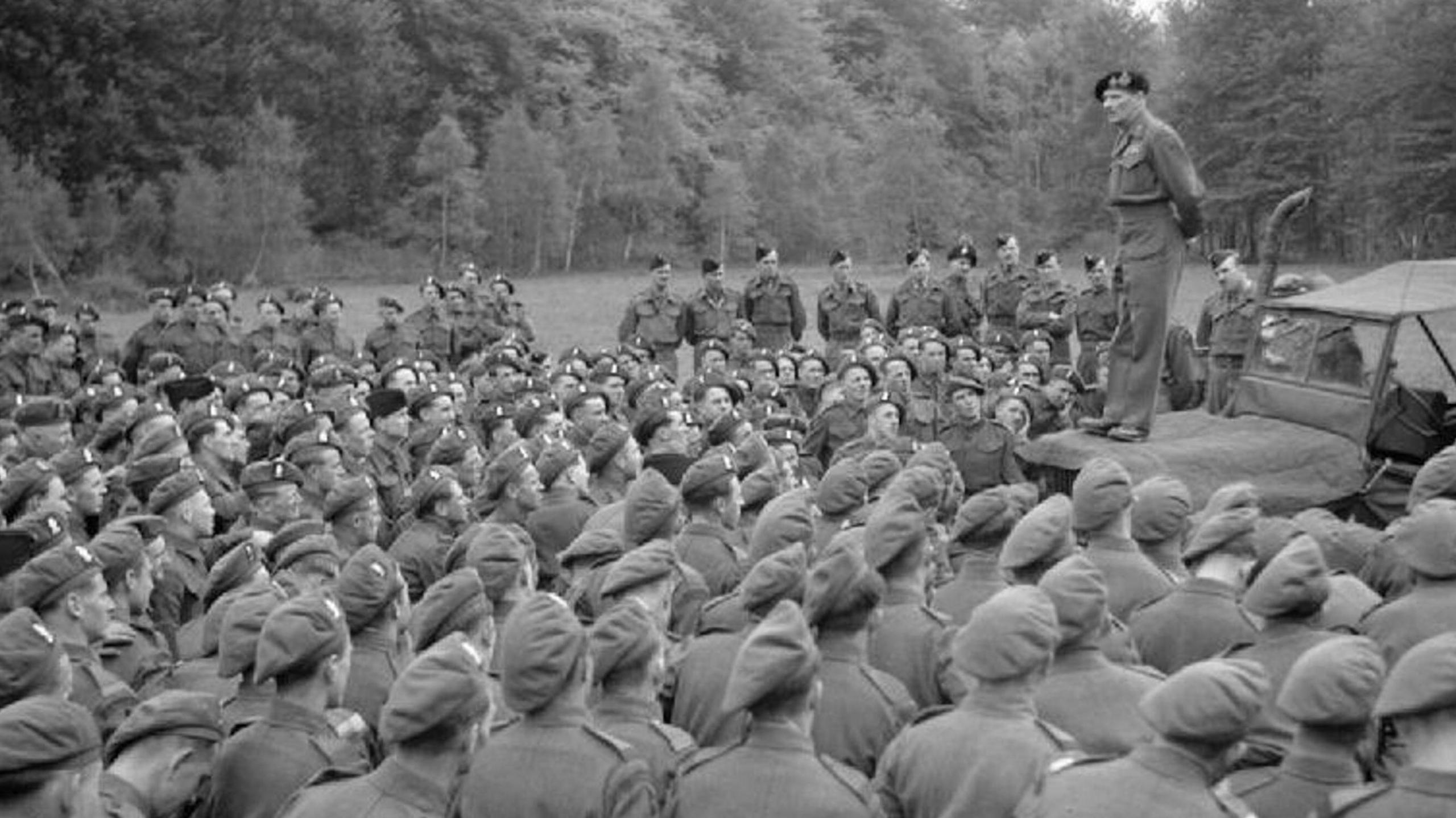
General Montgomery inspecting the Royal Ulster Rifles in May 1944, just weeks before D-Day
- Published
When the fighting stopped and World War Two’s end came, towns and cities across the UK moved quickly to honour Britain’s most famous general.
Bernard Law Montgomery commanded the Allied forces on D-Day, a pivotal moment that turned the tide of the war.
'Monty', as he was known, was made a freeman of countless cities, including London, Edinburgh and Manchester.
Among them was a place that Montgomery said felt most like home - Londonderry.
“In Tripoli in 1943 he told soldiers of the 9th Londonderry Heavy Anti-Aircraft Regiment, ‘I am a Derry man myself',” military historian Richard Doherty told BBC News NI.
“And indeed he did see himself as being from the north west (of Ireland),” he added.
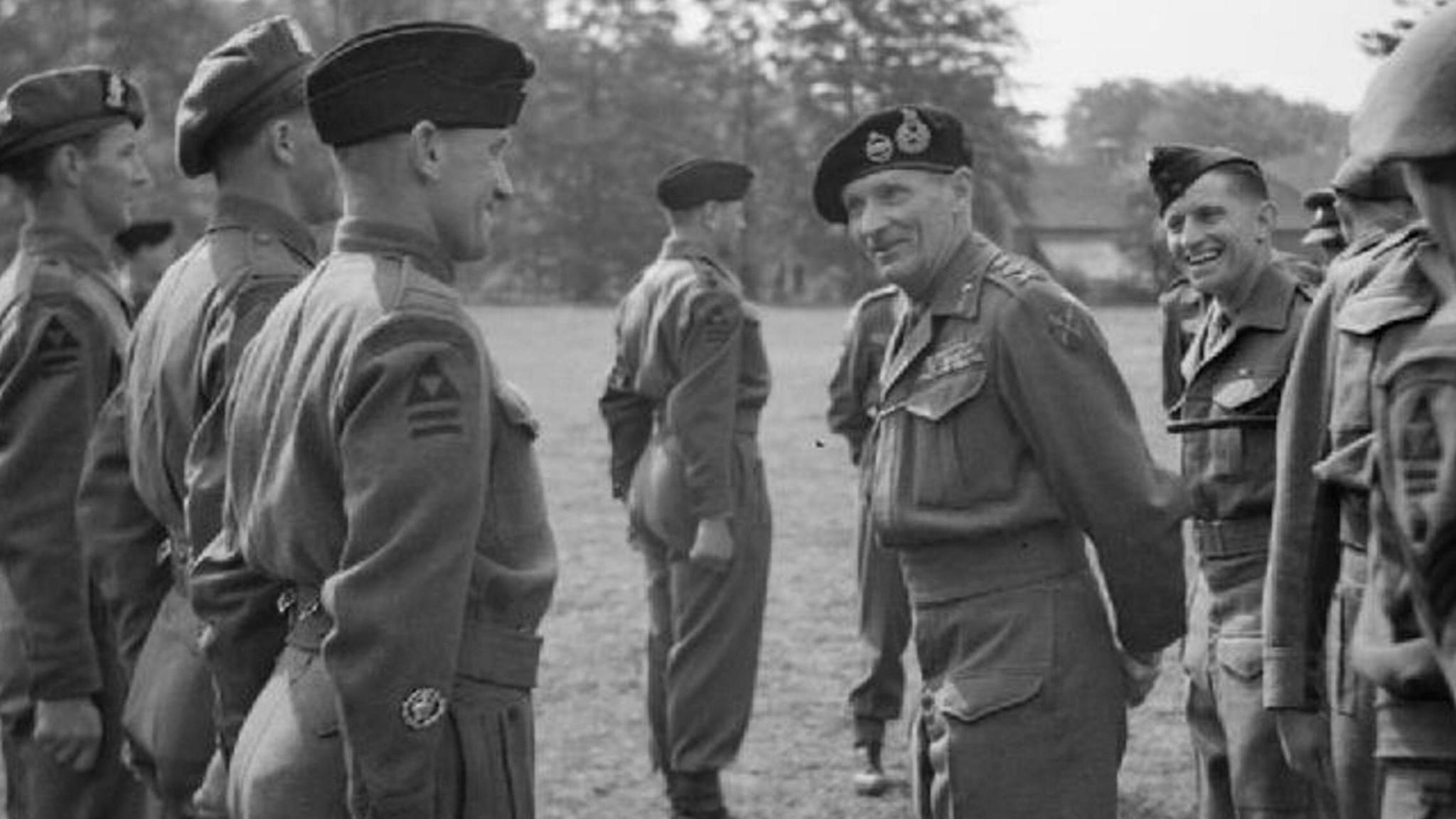
After the war, Montgomery, by then a Field Marshal, was created a knight of the Garter and Viscount Montgomery of Alamein.
It was on 15 September 1945 that Montgomery arrived in Derry to receive the honour.
Such was the crowd that the ceremony did not take place in the city’s Guildhall.
Instead it took place, for the first and only time, on Derry’s historic walls.
A crowd of about 4,000 people had come to see Monty, according to The Derry Journal of 17 September.
“It is with very great pleasure that I am here today in your fine city, which I almost feel is my home town,” the newspaper records Montgomery as telling the crowd.
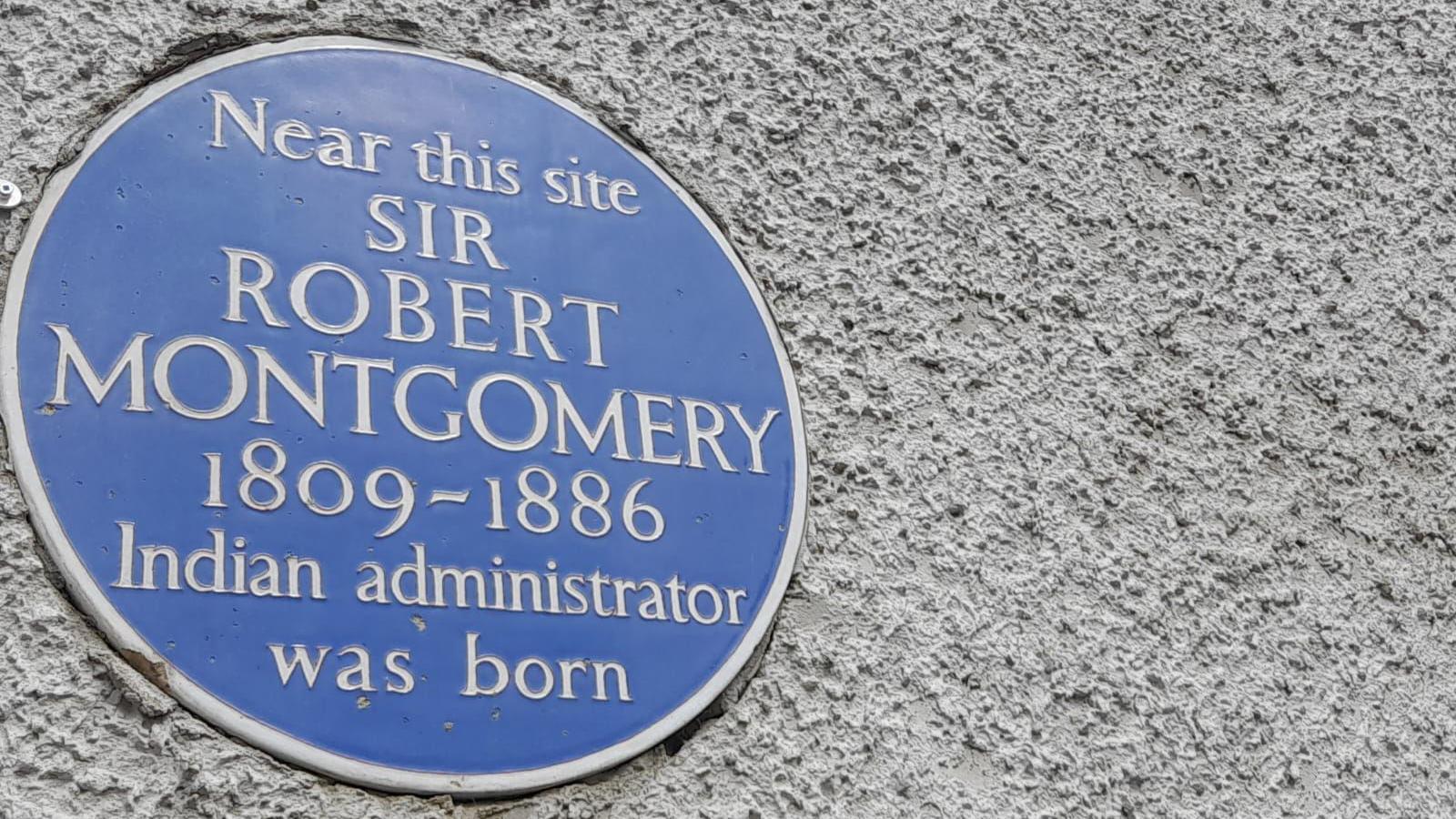
Robert Montgomery, the Field Marshal's grandfather, is remembered in London Street in Londonderry
The field marshal’s ancestors, Mr Doherty said, were Normans and by the 17th Century had made their way to Ireland.
Some had settled in County Down, others, the field marshal’s branch of the family, in Killaghtee, County Donegal, near the town of Killybegs.
By the late 18th Century, Samuel Law Montgomery, Monty’s great-grandfather, had ventured north and settled in Derry.
There, Mr Doherty said, he traded as a wine merchant, making a small fortune, marrying and raising a family.
His son Robert, Monty’s grandfather, was born in Derry and schooled at Foyle College. He became a noted colonial administrator in India.
In 1774, Samuel bought an estate close to the shores of Lough Foyle, some 19 miles from the city, at Moville in County Donegal.
This was long before Ireland’s partition and Donegal’s Inishowen peninsula was a natural hinterland to the city of Derry.
The estate would become New Park, the Montgomery family home until the middle of the 20th Century.
Mr Doherty said the young Monty “certainly regarded New Park as home, he was certainly much happier there than in London”.
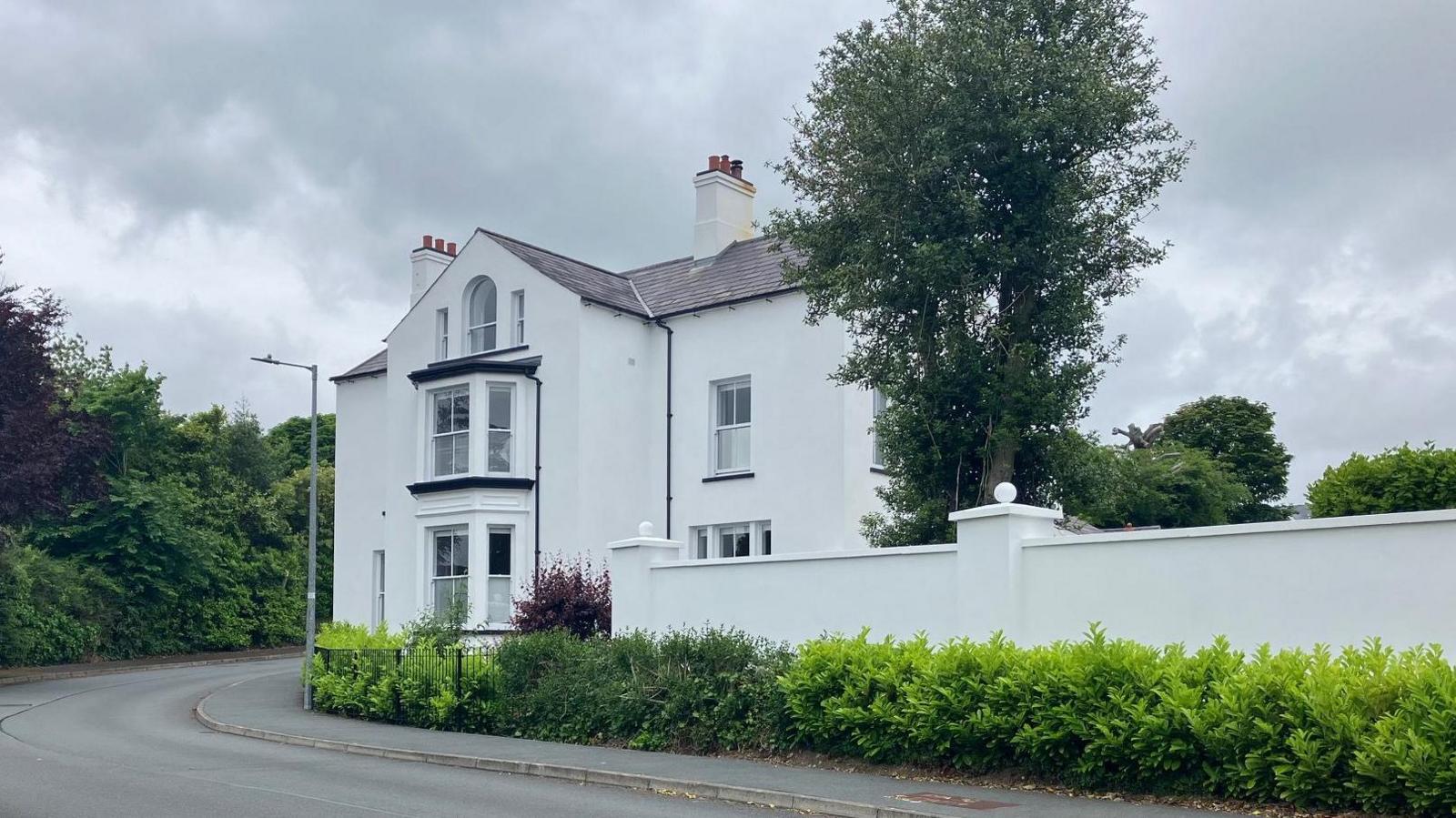
The field marshal's mother, Lady Montgomery, was the last member of the family to live at New Park, which has been restored in recent years
Monty was born in London in 1887.
His father Henry was an Anglican clergyman and his mother Maud Farrar was a daughter of the archdeacon at Westminster.
In 1889, Henry was appointed Bishop of Tasmania.
It's there that Monty would live until the age of 13, when he returned to England.
But it was Moville, and New Park, which his father had inherited in 1887, that he thought of as home.
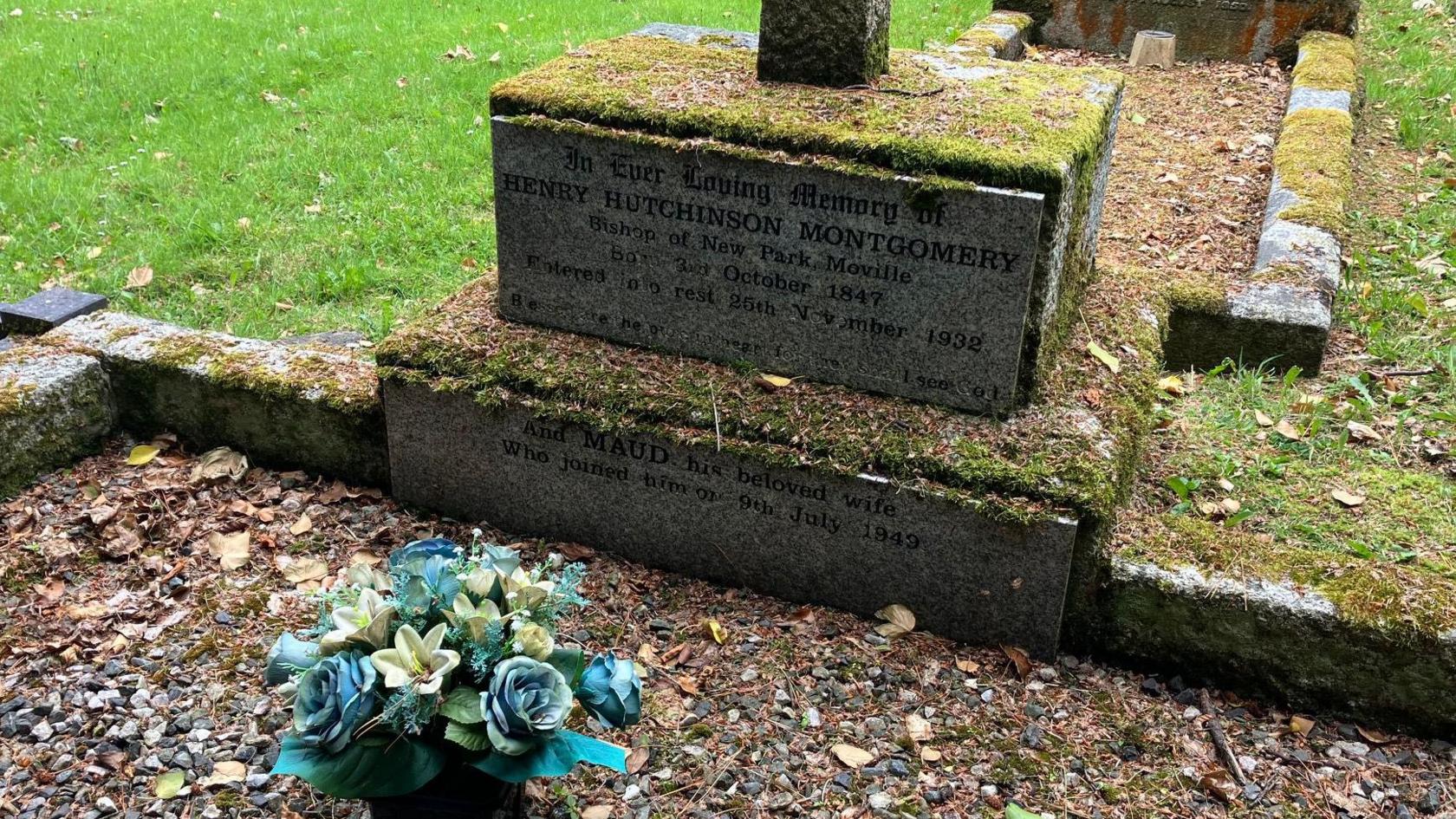
The field marshal's parents are buried in the grounds of the church they helped build close to their home in Moville
“He wasn’t born in Moville, but he spent all his holidays there,” Sean Beattie from the Donegal Historical Society told BBC News NI.
“He sailed Lough Foyle in the summer time, played croquet on the lawn and attended church in Moville,” he said.
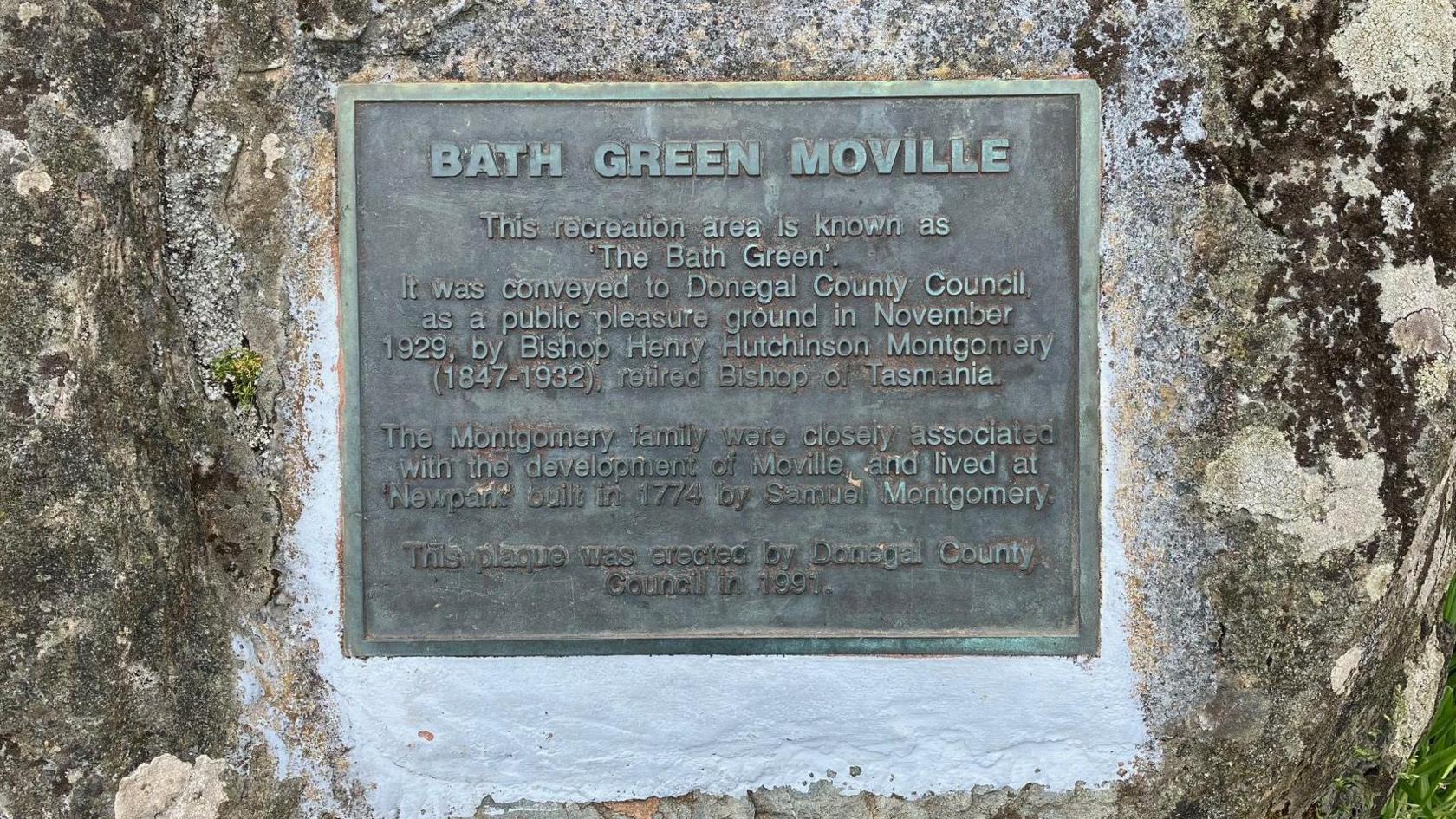
Mr Beattie said local people are still very aware of the link to the Montgomery family
His parents were quick to become part of the community and would help build the local Church of Ireland.
A row of terraced houses, Montgomery Terrace, named in the family’s honour, still looks out over the town’s shoreline and to Lough Foyle.
A plaque close by remembers that the bishop gave back part of the land bought by Samuel to the community.
“People are very much aware of the Montgomery connection in Moville, it’s very much alive,” Mr Beattie said.
“The bishop and Lady Montgomery were very active in the community, the family were very much part of Moville.
“Bishop Montgomery would have walked daily through the town, called to certain houses in the square. The path he took became known as The Bishop’s Walk."
Lady Montgomery, Monty’s mother, was the last member of the family to live at New Park.
She died in 1949, seventeen years after her husband, and the house fell out of the family’s ownership not long after.
'The hills of Donegal'
As Monty flew into Derry to receive the city's freedom, the Derry Journal reported his Dakota plane “flew low over Moville” so he could see his parental home.
The paper also noted Monty had not been able to visit New Park for seven years.
By this time, the island of Ireland had been partitioned, with Derry in Northern Ireland, Moville in the Irish Free State.
The Journal further reported that while eating lunch in Derry, Monty said that as he “looked out the windows and saw the hills of Donegal on which he used to roam as a boy he wondered to himself whether it was quite proper that they should make a Free Stater a freeman of Derry”.
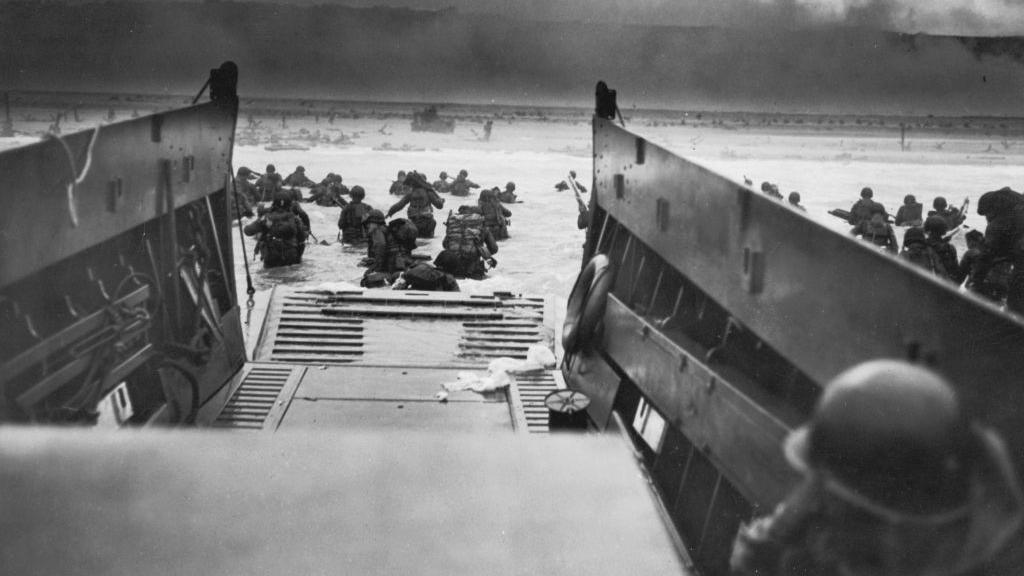
Troops from the UK, the US, Canada, and France attacked German forces on the coast of northern France, on 6 June 1944.
What is D-Day?
D-Day, also known as the Normandy landings, was one of the most significant events in World War Two.
Tens of thousands of Allied troops landed in gliders and on the beaches of northern France on 6 June 1944.
It was the largest seaborne invasion in history and marked a turning point in the fight against Nazi Germany.
What were the D-Day landings?
- Published6 June 2024
D-Day: Antrim resident 'had best view of landings'
- Published10 March 2023
WW2 veteran 'never talked openly about the war'
- Published30 October 2022
Field Marshal Montgomery’s contribution to the war should not be under estimated, Mr Doherty said.
While best known for victory at El Alamein and for planning and leading the troops during Operation Overlord, it was an earlier operation that first set him apart, he explained.
The field marshal believed in building relationships with his men, ensuring he was not a faceless officer. He wanted soldiers to feel properly prepared, fully trained and well supplied, Mr Doherty added.
“You see that in the retreat to Dunkirk in 1940 when he commanded 3rd Division. He made his soldiers train very hard, and it paid off.
“They had to move from one end of the British line to the other at night – a manoeuvre the German army could not have carried out in 1940,” he said.
On 4 May 1945, Montgomery received the surrender of the German northern armies at Lüneburg Heath.
After the war, he was created a knight of the Garter and Viscount Montgomery of Alamein.
- Published6 June 2024
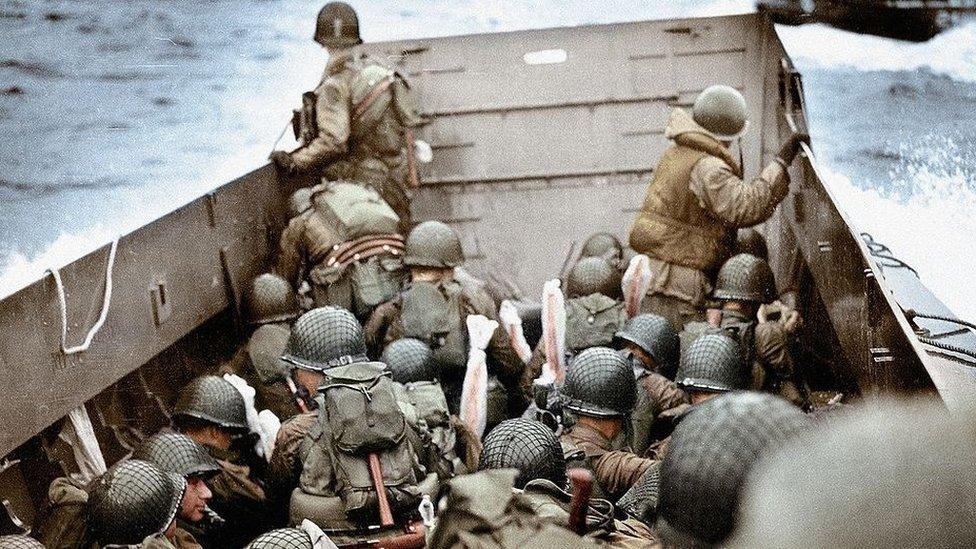
- Published2 June 2024
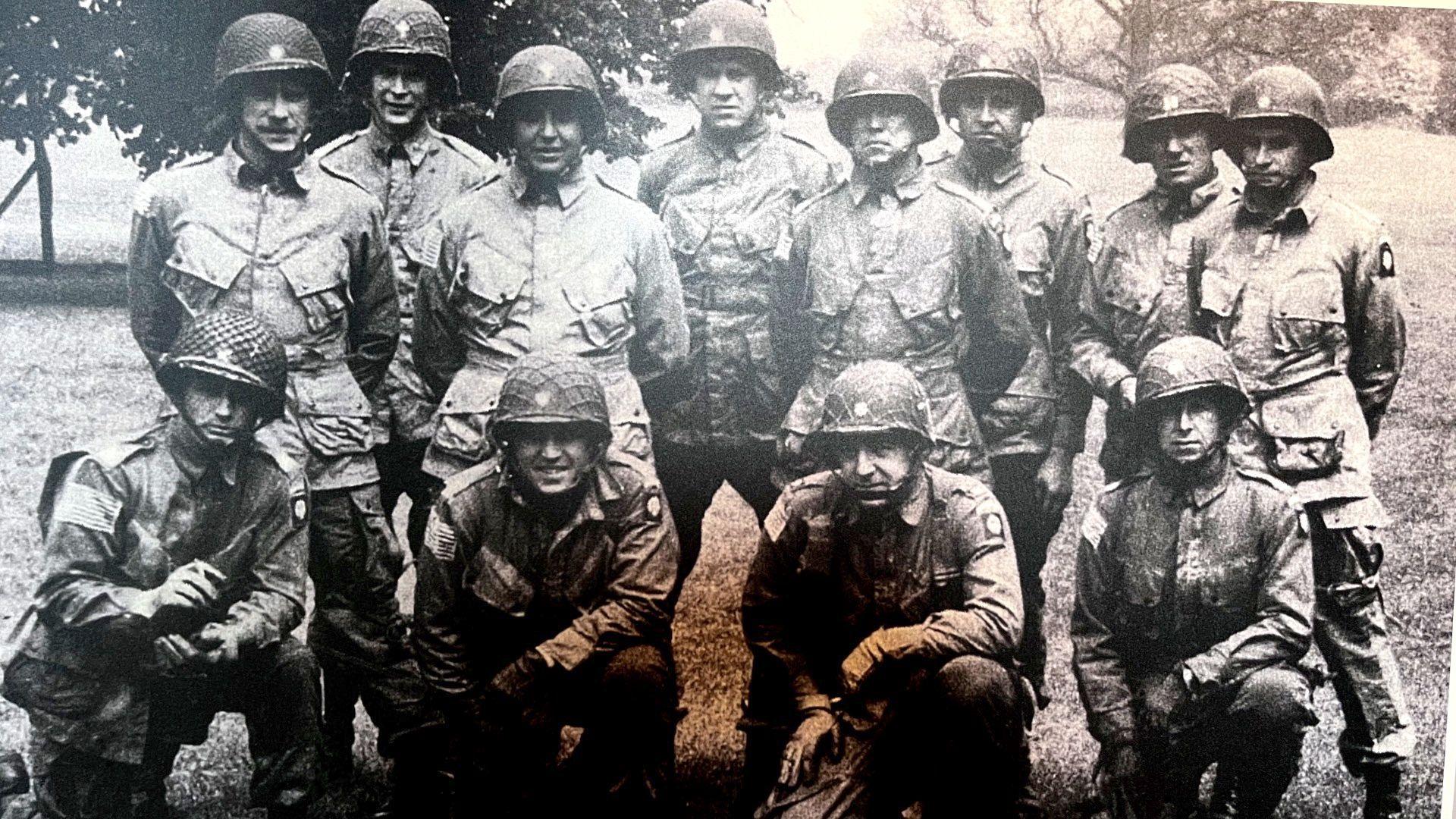
- Published2 June 2024
